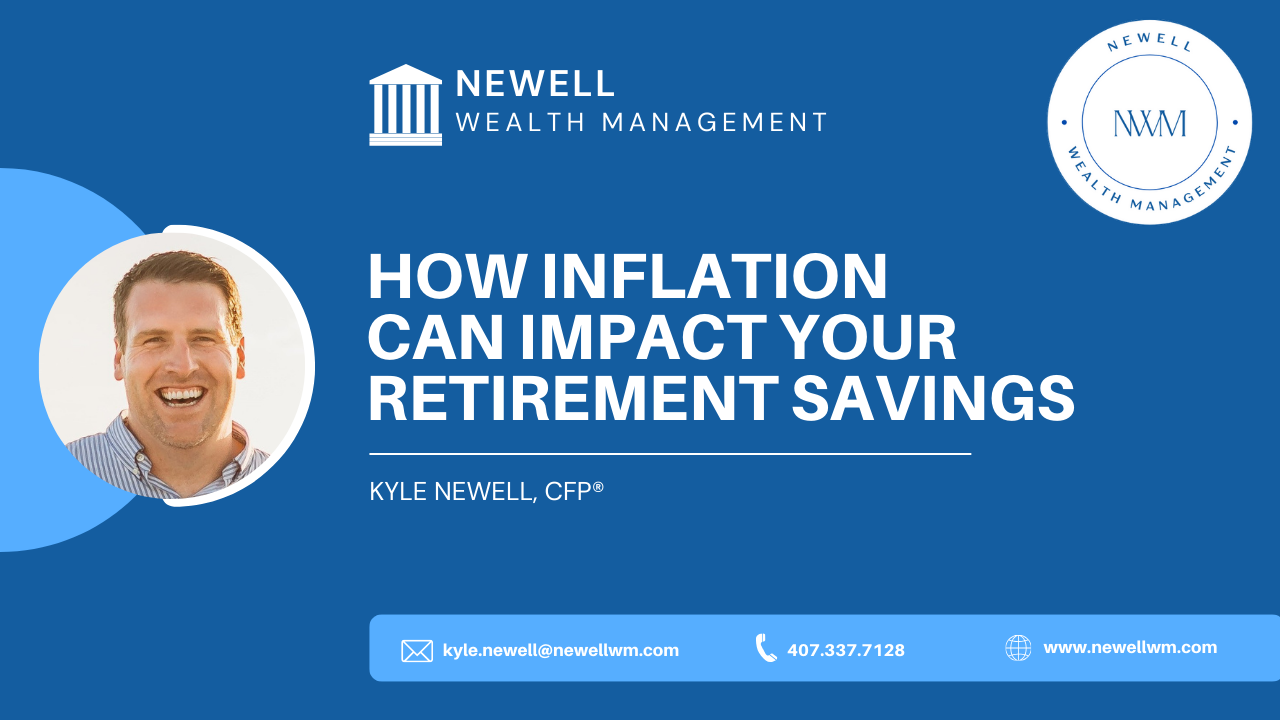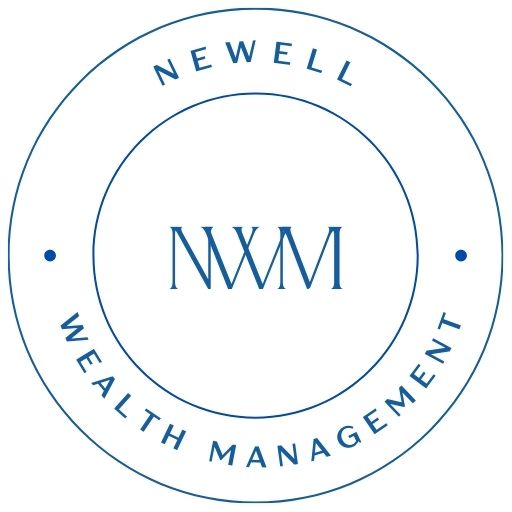How Inflation Can Impact Your Retirement Savings

Inflation has been talked about constantly for the past few years. If you are nearing retirement, you may wonder how inflation will impact your desired retirement life. There are three primary things I discuss with my clients to help them understand how inflation can impact their retirement savings.
- Expected Rate of Return
- Cost of Living
- Ability to Save
Let’s examine each one more closely and discuss how to include inflation in your retirement planning.
Expected Rate of Return
Inflation impacts your expected return or your rate of return. For example, your investments may earn 10%, but if inflation is at 5%, you only earn 5%.
A lot of financial planning is based on assumptions. We have to assume how things may work out in the future. As a financial planner, I want to model out not just one scenario for my clients but multiple scenarios. Inflation is a big part of those scenarios.
Congress appoints the Federal Reserve (aka “The Fed”) to control the monetary supply for our country. The Fed has two mandates from Congress:
Price Control: Keep inflation at bay.
Unemployment: Maintain at normal levels.
The Fed can increase or decrease rates to control these two aspects.
Inflation and Rates of Return
When inflation is high, it impacts your rate of return because if inflation is high, your money has to earn the equivalent level, at minimum, to hold the same value.
Example
Let’s say that inflation is 4%. This means that your money has to earn at least 4% for it to be the same value. If you’re earning 4% and the things you buy cost 4% more due to inflation, you net a 0% real return.
Projections
Making projections on expected earnings is about more than just taking the historical average of those returns. It’s also about the historical average of those returns, less projected inflation. You can use many different metrics, such as the historic number or a projected number.
However you look at it, inflation does impact your projected return. For example, if you need a 6% rate of return to hit your retirement goals, it needs to be a 6% rate of return after inflation.
Cost of Living
When making financial plans, you want to make some assumptions about how much life will cost down the road. Inflation is a key factor that impacts those costs. What a gallon of milk costs now will be different from what it costs five, ten, twenty, or thirty years from now.

Example
Suppose you’re working at Walt Disney World and planning to retire five years from now. As part of your financial planning, you see that your total expenses for the year (after taxes) are $100,000. This $100,00 is your living expenses, travel, and everything you want to do.
Due to inflation, $100,000 a year will not cover the same lifestyle five years from now. You have to assume some inflation to get to what the expenses would be five years from now.
When you examine the projections and analysis, you want to assume some sort of rate of return for inflation. The preferred inflation rate is 2.5%. The Fed tries to keep the rate at that average over time. However, as we saw in 2021, 2022, and 2023, inflation can rapidly spike.
When planning for retirement, it’s essential to be aware of those impacts and try to plan for inflation’s impact on your future expenses. You do not just need to maintain $100,000 per year; you might need more than that to adjust for inflation.
Ability to Save
The third way inflation impacts you is your ability to save and your current expenses. Over the past few years, I have spoken with many clients who feel the rapid increase in the cost of living has impacted their ability to save and maintain the retirement lifestyle they want.
Hopefully, inflation doesn’t last forever, but if it does, or if it continues at the rates that it has been, it will impact your financial plans and your retirement savings. Experiencing 20% price increases over the past three years is a significant amount of money for most of us and may impact our ability to save in the future.
It’s critical to look at what your expenses are and where your money is going. Look at your savings and determine whether it will be enough to keep up or if you need to increase your savings.
Every once in a while, I meet with clients who are naturally inclined to save. I call them Super Savers. Sometimes, they need to dial back their savings.
However, for the majority, it’s looking at
- Future Projections
- How Inflation Has Impacted Your Situation
- Awareness of Your Expenses
Sometimes, inflation just creeps in. You can make your payments, but notice there’s less and less each month in your checking or savings account. This may significantly impact your ability to continue to save because you may have to dial back savings just to maintain your lifestyle.
Final Thoughts
We can’t avoid inflation, but we can learn how to plan for it. Start by looking at these three things:
- Expected Rate of Return
- Cost of Living
- Your Ability to Save
Proper financial planning that considers the impact of inflation can help you continue to save and maintain your lifestyle in retirement. If you want to speak with an experienced financial planner about how inflation may impact your financial success, I’m happy to help.
Important Information
Newell Wealth Management, LLC (“NWM”) is a registered investment advisor offering advisory services in the State of FL and in other jurisdictions where exempted. Registration does not imply a certain level of skill or training. The presence of this website on the Internet shall not be directly or indirectly interpreted as a solicitation of investment advisory services to persons of another jurisdiction unless otherwise permitted by statute. Follow-up or individualized responses to consumers in a particular state by NWM in the rendering of personalized investment advice for compensation shall not be made without our first complying with jurisdiction requirements or pursuant an applicable state exemption.
All written content on this site is for information purposes only and is not intended to provide specific advice or recommendations for any individual. Opinions expressed herein are solely those of NWM, unless otherwise specifically cited. Kyle Newell and NWM are neither an attorney nor an accountant, and no portion of this website content should be interpreted as legal, accounting or tax advice. Material presented is believed to be from reliable sources and no representations are made by our firm as to other parties’ informational accuracy or completeness. There is no assurance that the views or strategies discussed are suitable for all investors or will yield positive outcomes. Investment involves risks including possible loss of principal and unless otherwise stated, are not guaranteed. Any economic forecasts set forth may not develop as predicted and are subject to change. All information or ideas provided should be discussed in detail with an advisor, accountant or legal counsel prior to implementation.
